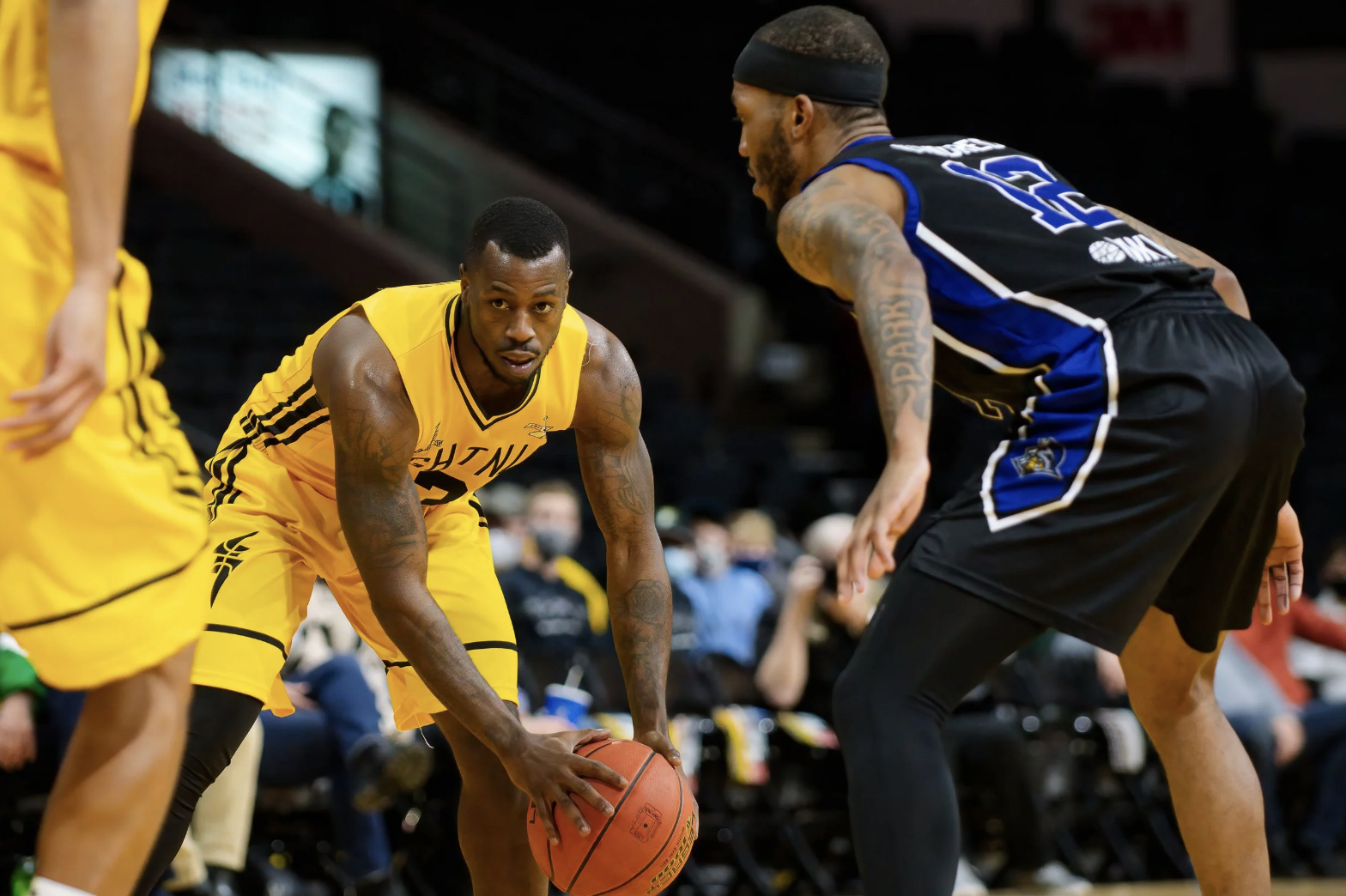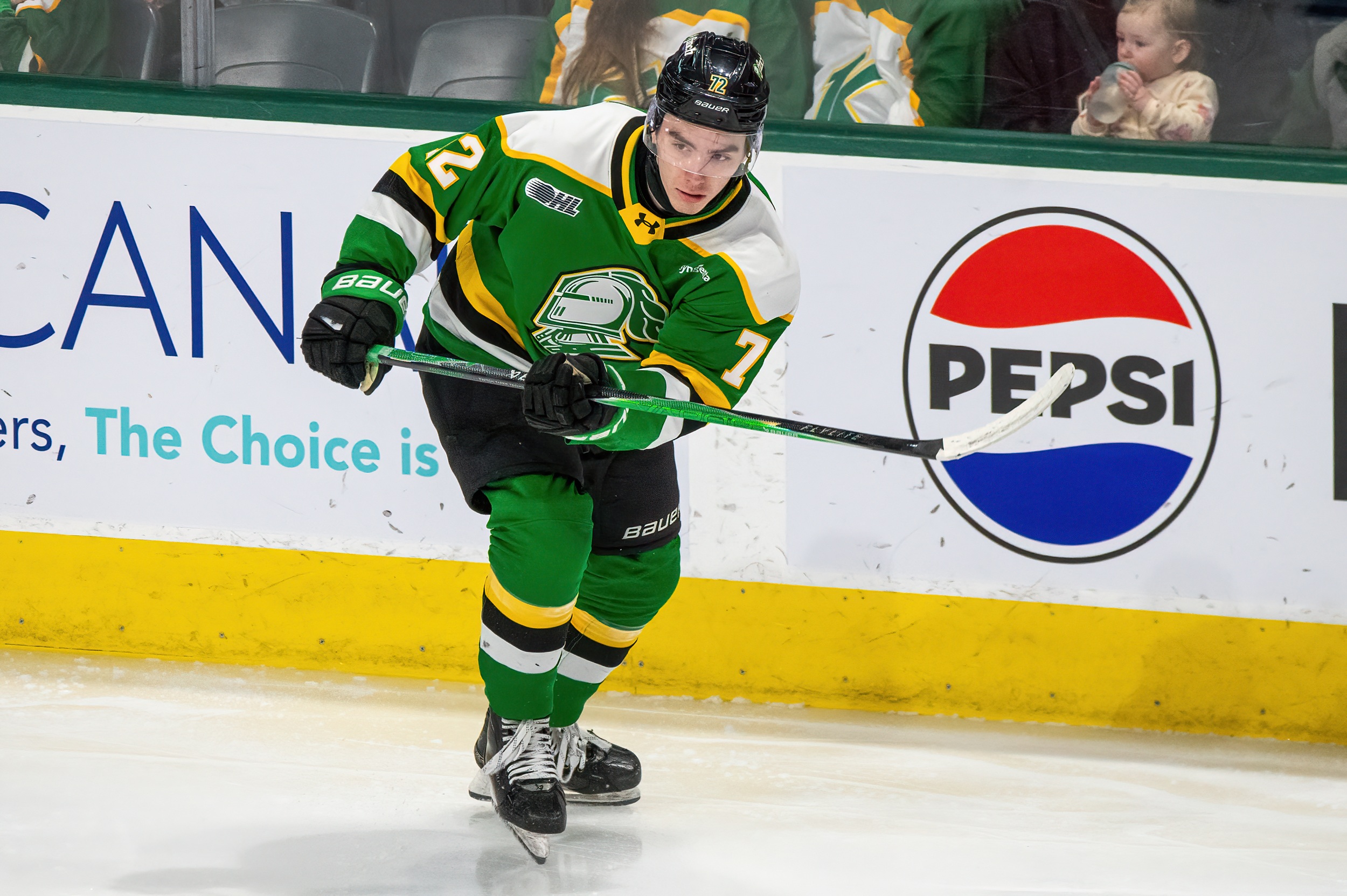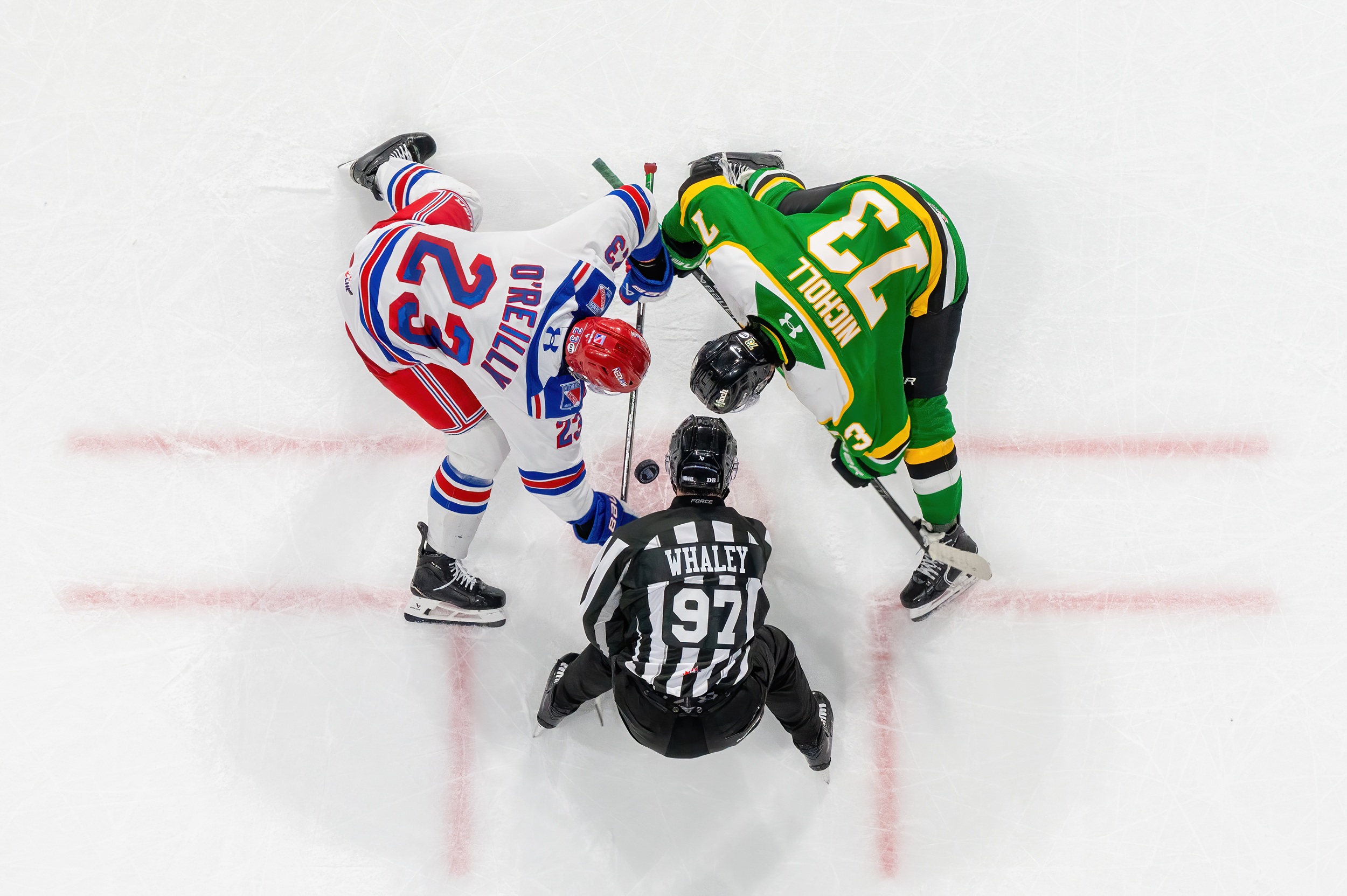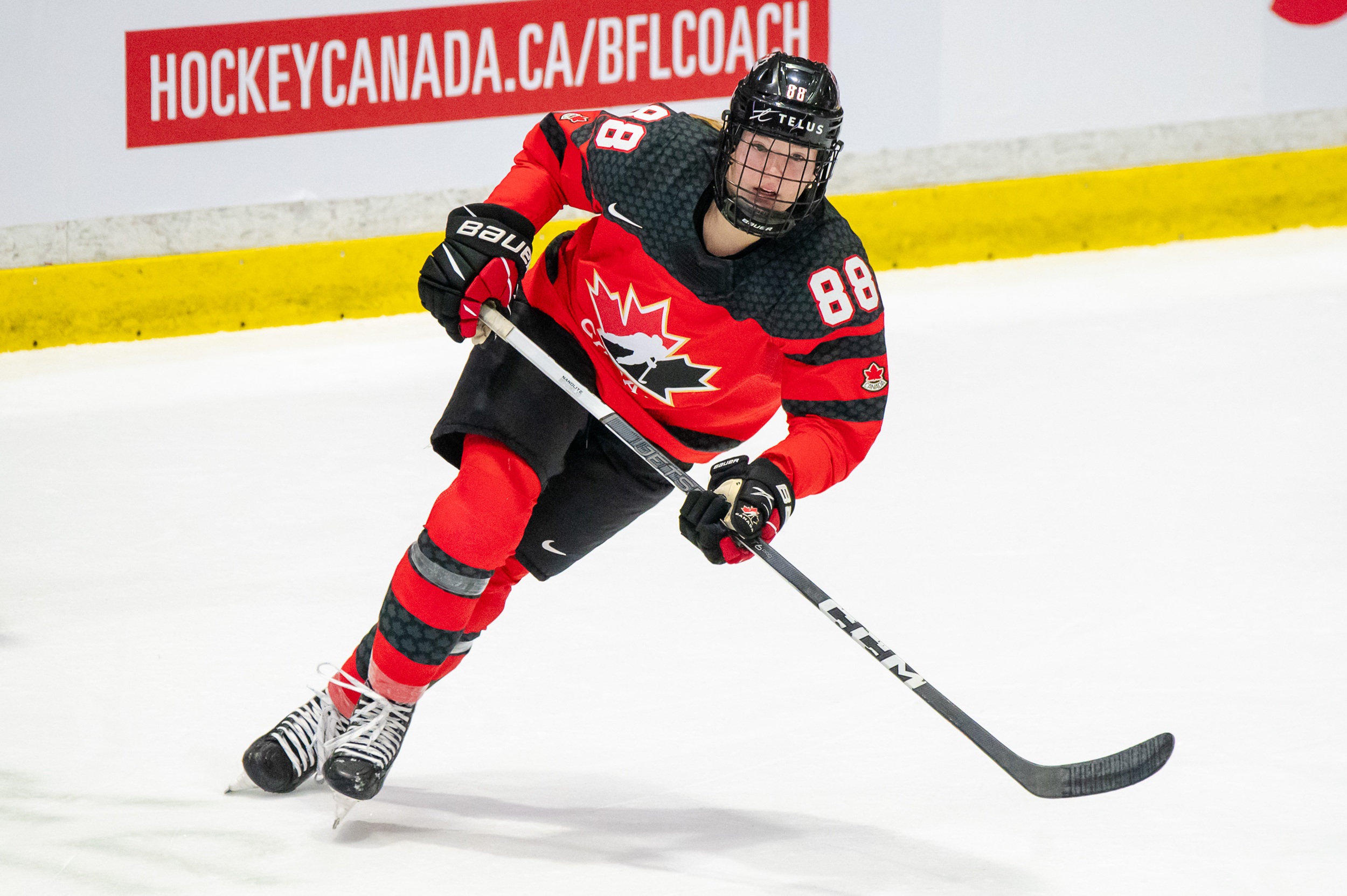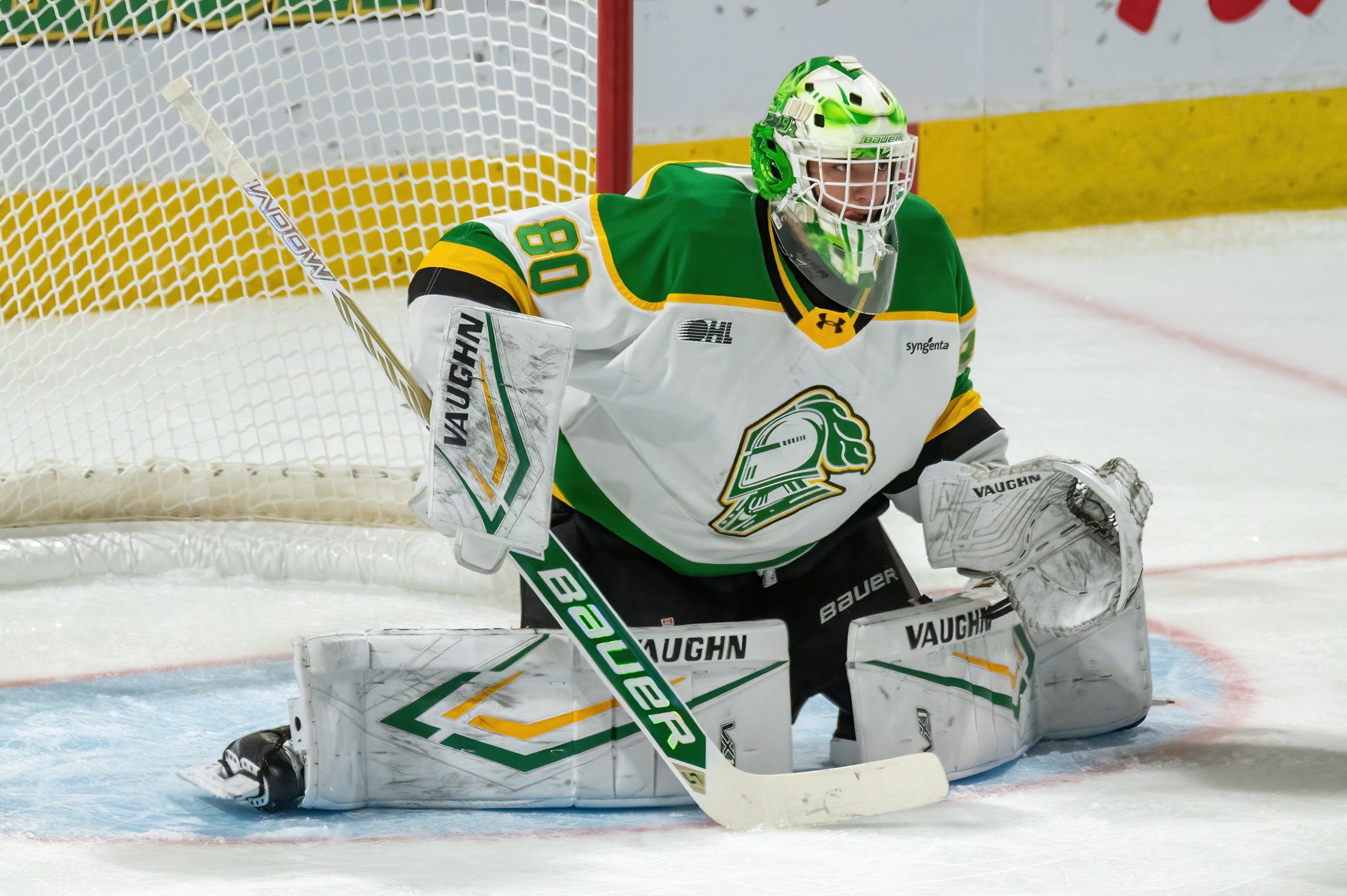|
Getting your Trinity Audio player ready...
|
Lightning point guard Chris Jones spoke only days ago about struggling with his mother’s death, wrestling with his own demons, and his hopes of a new start in London – hopes now dashed by his own hand.
After every game, win or lose, Chris Jones sent a text message to his Mom that he knew wouldn’t be answered. Nevertheless, he sent it anyway because he wanted her to know that he was OK.
“Before the game. After the game. It’s just my routine,” Jones said. “But, you know, once they started turning green, and you knew an answer wasn’t coming, you feel like ‘damn’ – but I still do it. I don’t do it as much as I used to, but for me, I feel like I gotta keep that up as a son because it keeps me free of everything. When I talk to her, even if she don’t answer, I don’t hold everything in.”
For most of the season, Jones has been the vocal leader for the NBL Canada’s most talented team. That was until the talented-yet-volatile star was dismissed from the squad late last week, only days from representing his franchise and league at the NBLC-TBL All-Star Weekend and weeks away from competing for a league championship he so desired.
Now, the former Lightning floor general carries a heavy heart into an uncertain future of his own making without the rock of his life or the game that helped him cope with her loss.
* * *
Christy Jones was that ‘Neighbourhood Mom’ – Momma Jones. The kind of woman who kept an eye on every kid in their Memphis, Tenn., street.
But when it came to her only son’s hoops, she only had eyes for him. She never missed a game in high school. Traveled six hours north to Louisville for every university home game. Watched every pro game she could find on the internet. When Chris came home in the summer, the two would sit together in the living room and watch tapes of his old games.
They would talk for hours. He never hid anything from her.
“Win or lose, we never celebrated anything bigger than the other. Whatever I did, she showed me the same amount of love,” Jones said.
But if there was one moment that shined through for her, one moment she pointed to with pride for her son, it had to be going to college and university.
Jones grew up in the Orange Mound neighborhood in Memphis, a tough slice of the city’s east end. He was the man of the house, living with his mom and three sisters, sleeping in the back room next to the family pit bull who served as both company and security for the Jones Family. “I wasn’t a troublemaker, but I did what everybody else did because they were my friends,” Jones told ABC News in January 2014. “I didn’t know no one else but them, so I did what they did. I thought it was cool.”
Jones still credits his high school coach, Jermaine Johnson, for putting a basketball in his hand, a way out – and up – for the young man.
“People said I wasn’t getting out of high school. For me, passing high school and going to college was something,” Jones said. “Understand all the stuff (my Mom) used to hear about me growing up: ‘He is just a badass.’ ‘He’s not going to make it to college.’ ‘Memphis people don’t make it to the college.’ For me, going to college was a blessing. Me getting out of Memphis, she could brag on her son – ‘That’s my son. He’s in college. He plays at the highest level.’
“People don’t understand the life we live over there in some areas. Nothing was given, we had to take it, we had to earn it back in my day. Just going to college was a blessing. Me getting a scholarship was a blessing. A college coach calling her and asking about me was a blessing. She experienced everything I experienced in basketball life. It was all a blessing to her.”

* * *
Chris Jones was blessed with talent – rare, spectacular, unteachable talent. It was raw, sure, but it was there in abundance.
In high school, Jones was one of the hottest prospects in the U.S. Southeast after winning a state championship and tournament MVP with Melrose High School in Memphis.
Sure, early on there were signs that his attitude might get in the way of advancement – but when attitude closed a door, talent opened another. When prep basketball powerhouse Hargrave Military Academy passed on Jones because of attitude concerns, another school quickly surfaced. Jones played his senior year of high school at Oak Ridge (N.C.) Military Academy, where he averaged 22.5 points, 5.1 rebounds, 5.0 assists, and 2.8 steals per game.
Coming out of high school, Jones was rated among the 10 best point guards in the nation by ESPN, Rivals and Scout; Rivals slotted him as the No. 39 overall prospect.
That kind of ranking meant university hoops royalty was knocking on his door: Baylor, Florida State, Kansas, Memphis, Oklahoma State. He originally committed to the University of Tennessee as part of its 2011 class, but Jones instead opted to play two years for Northwest Florida Junior College under former Tennessee assistant coach Steve Forbes after Volunteers head coach Bruce Pearl was fired.
At Northwest Florida, Jones thrived – named 2013 National Junior College Division I Player of the Year by the National Association of Basketball Coaches; a two-time first-team NJCAA All-American; and twice Panhandle Conference Player of the Year. Jones averaged 21.8 points, 5.1 rebounds, 4.1 assists, and 3.0 steals per game as a sophomore in leading the Raiders to a 30-4 record and a second consecutive national runner-up position. He ranked fifth in the nation in scoring and seventh in steals.
In two seasons, Jones led Northwest Florida to a 62-6 record.
“Chris is a winner,” Forbes told Bleacher Report. “One of the most competitive kids I’ve ever coached. Makes others around him better but is an explosive scorer. The best PG in the country, high school or junior college.”
That performance made Jones one of the most coveted JUCO recruits for the 2013 class. Legendary head coach Rick Pitino, then with the University of Louisville, recruited Jones hard for months leading to the signing period as they sought a quick guard who made smart decisions.
Pitino landed the prized recruit as part of the 2013-14 Cardinals. There, Jones played with future NBA players Montrezl Harrell, Mangok Mathiang, Terry Rozier, and Russ Smith.
When asked what impressed him most about Pitino, Jones replied simply: “Everything.”
Pitino continues to make a huge impact on Jones, as he carries many of the lessons learned under the famed coach with him today. They are the kind of lessons that helped Jones meet many of this season’s expectations from the Lightning coaching staff.
“Not everyone will always like your approach, and sometimes my coaching style is intense and I’m maniacal about details,” Lightning head coach Doug Plumb said in a March interview. “For some of these guys, it’s new for them. The level of expectation is uncomfortable at times. But Chris, he’s a vet, and he’s laughing the other day and says, ‘Man, these guys ain’t seen anything. I played for Pitino; you’re nice compared to Pitino.”
* * *
Louisville should have been the moment Chris Jones put it all behind him. It was his biggest opportunity on the biggest stage he would ever play.
In his first year, Jones was Louisville’s fourth-leading scorer (10.2), producing at least 15 points in eight games. He hit at least one 3-pointer in 25 of 33 games. He scored 11 points against both Manhattan and Saint Louis in the NCAA Tournament. He finished the Big Dance with 28 points (including 11-12 from the line), 5 steals, and just 4 turnovers in 89 minutes.
But the relationship with his coach was not perfect. Team observers at the time talked about how Jones frustrated Pitino with his shot selection and kamikaze-style play. He also had problems talking back to his coach – and if you know anything about Rick Pitino, that kind of attitude doesn’t play with the coach.
Jones always said the right things – he wanted to learn, didn’t want to distract, wanted to grow as a person and a player.
“From the crazy Chris Jones, I came a long way,” Jones told the Louisville Courier-Journal on February 21, 2015. “Coach knows that. Every time I’ve listened to coach, I played great. When I try to fight back, that’s when I struggle some. I tell coach to stay on me more than anybody, and that’s what he’s been doing. So, I’m learning to take coaching very well.”
But his actions almost always betrayed his words.
It all spiraled out of control in February 2015.
On February 17, 2015, Jones was suspended for a game “for a violation of team rules” that Pitino called “unrelated to basketball.” That was coach code for the fact that Jones had sent a threatening text message to a woman he had previously dated.
On February 22, 2015, Jones was dismissed from the team for missing curfew after playing Miami on February 21, 2015. Days after that dismissal, Jones and two other men were charged with rape stemming from an incident that allegedly occurred after the Miami game.
Local media covered the case solid for two months as Jones and his attorneys proclaimed innocence throughout. Two months later, Jones and his two co-defendants were exonerated of all charges after a grand jury refused to indict the three men after hearing two days of testimony.
Local media later focused on the lead investigator, a University of Louisville police investigator who served as lead on three other rape cases in which defendants were convicted and later exonerated. In one of those cases, the city paid a $3.9 million settlement to a wrongly accused man cleared by DNA evidence.
It was a disastrous situation for all involved, the culmination of a rocky time in the spotlight and a strong signal that Jones’ time in Louisville had come to an end.
Even the man who brought Jones to campus had been distancing himself from Jones for months prior to the end.
“Chris is the type of guy who always has his hands in the cookie jar, and if you allow his hands to go in the cookie jar, he’ll take all the cookies,” Pitino told the Louisville Courier-Journal in January 2015. “He’ll do the wrong things … so you have to make sure Chris does all the right things. He is a great guy and a lot of fun to coach because he’ll bring it every single practice, but if you allow him to have bad habits, he’ll have a lot of bad habits. If you don’t allow it, he won’t.
“In the past he’s been allowed to get away with certain things. It’s like … most young people are sitting on a fence. With discipline, education, fundamentals, they’ll do great things in life. If you don’t give them good discipline, good fundamentals, good teaching, they’ll do the wrong things in life.”
Pitino suggested that if Jones never figured it out, he might wind up in “Belgium somewhere.”
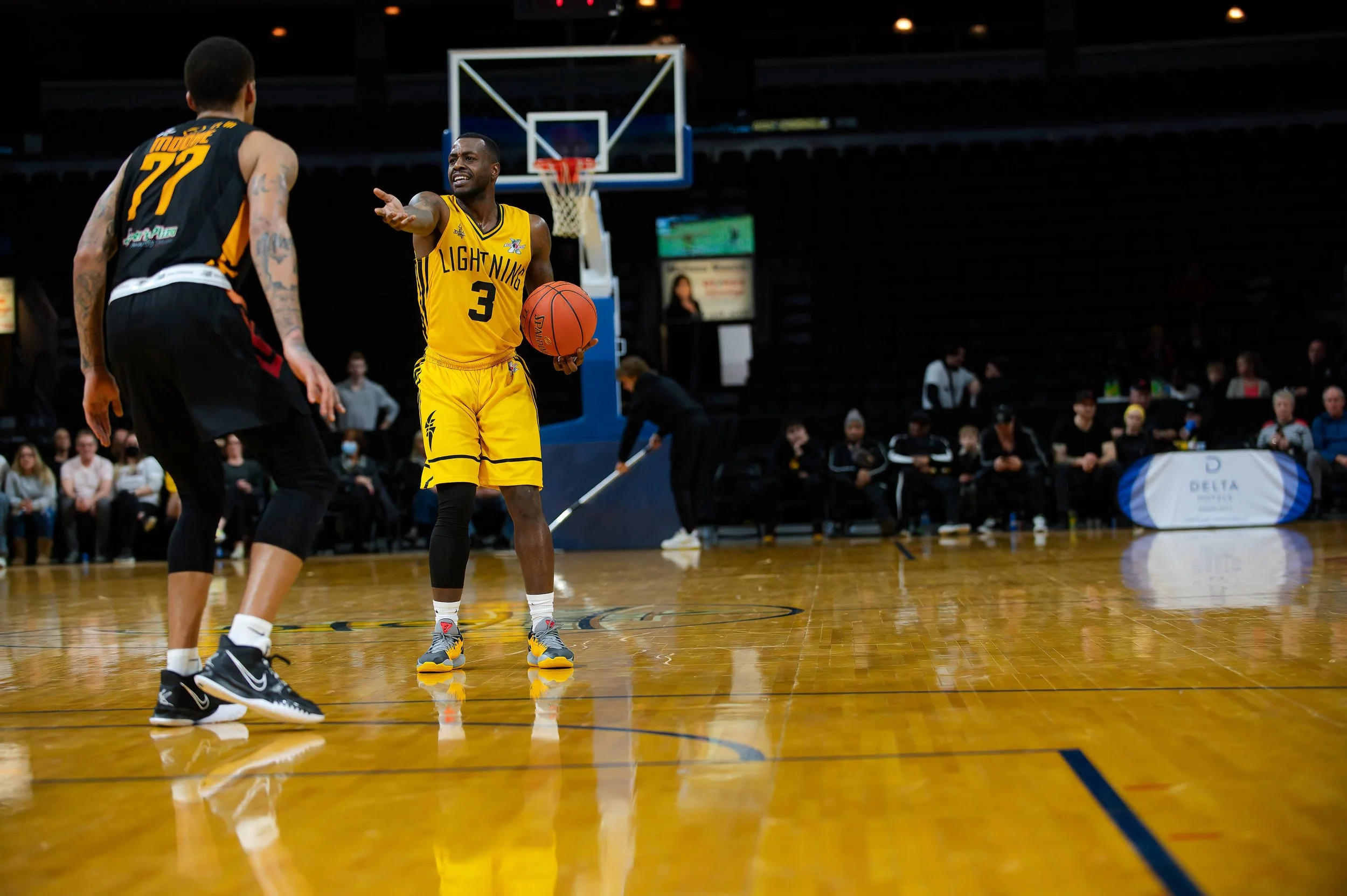
* * *
Well, it wasn’t Belgium. But Jones did bounce around the globe after Louisville. The international game can be a bit strange, at times, some fly-by-night organizations, different levels of expectations and on-court cultures – it can be a lot for even the best adjusted player.
Jones played professionally in Turkey, France, Greece, Mexico, Qatar, and Iceland. Not bad for a kid from Memphis. But like his career so far, he found some success in some places; in others he found further attitude clashes.
Even home wasn’t always the safest place to be. In June 2017, while home in Memphis, Jones was shot in the leg on a basketball court next to a Memphis police department precinct. Jones told police that he was playing basketball on the opposite end of the court from where a fight started. He said he heard several shots and realized he was shot in the right side of his thigh, according to reports from the Memphis Commercial-Appeal.
Jones headed north to the NBL Canada soon afterward. In 2018, he joined the Windsor Express, where he played two seasons and was a league standout. During the 2019-20 season, he was named to the All-NBL Canada Third Team while boasting career averages of 22 points, 5 rebounds, and 6 assists.
Doug Plumb remembered exactly when he wanted Chris Jones as a member of his squad.
Plumb, then head coach of the St. John’s Edge, was watching the point guard torching his squad.
“I look at my assistant Steve Marcus and I say, ‘Man, none of our guys can guard him, and I can’t put my shoes on and play, so I gotta do something about this guy.”
With the Express shooting free throws, Plumb decided to do some talking.
“Chris had shown a tendency to be emotionally volatile, right? So, I thought, OK, the only way that I could get this guy out of the game is to get him thrown out of the game. So, Chris comes near the bench because they’re shooting a free throw, and not looking at him, I say, ‘Chris, you know what you are right now? You’re like a washed-up Gilbert Arenas. You’re a volume shooter. You’re shooting 25 shots to get 25 points and you think you’re playing well. That’s exactly what I want you to do.’ Then I walk away.”
Chris starts chirping back at Plumb, and the officials throw him out of the game. That usually means an automatic one-game suspension, but as Windsor only traveled east with eight guys, Jones was allowed to play the next night.
“So, what does Chris Jones do to us? He puts it on us for like 40-plus points and doesn’t say a word – he just looks at me on the bench every time he scores. I knew then that I gotta have this guy on my team. He is a beast.”
* * *
“I just lost my best friend.”
Christy Jones died after a bout with COVID-19 on July 18, 2021, in Memphis. She was only 48 years old, but her diabetes made the fight against the virus difficult. In her final days, she was confined to the hospital.
Jones contracted COVID-19 from his Mom, but was almost fully recovered by his birthday, July 3. That would be the last day he would be able to speak to her.
“I’ll never forget my last FaceTime with her. It was on my birthday. She was hooked onto a machine in the hospital,” he said. “Julys are gonna be, I don’t know, happy and sad from now on. It’s my birthday month. It’s also my son’s birthday on July 12. I don’t know what kind of month it would be.”
A lot of pain always behind this smile love n miss you everyday queen love yu ma .. pic.twitter.com/kVqDL2Cl2r
— Chris Jones (@iAM_UNGUARDABLE) March 15, 2022
When she died, Jones looked for an escape. He had family support in his sisters, but he also decided to focus on the game he loves.
“Basketball has been there for me, to cope with it, to take my mind off it, at least a little. Being around the guys, going to games, traveling, staying busy, that’s part of it. Instead of just sitting around thinking about it every day, all day. That’s when you get tore up and start thinking the worst. So, for me, I just love having fun on the court, keep a smile on my face, keep pushing it.”
Jones had run his course in Windsor, and with the passing of his Mom, he was looking for a fresh start. He knew Plumb, the franchise, the ownership, and the fanbase in London. He did his homework by speaking with former Lightning players Xavier Moon and Kevin Ware where he “heard great things about the fans and the organization, so it made the decision to sign an easy one.”
On Feb. 10, the Lightning traded for the rights for Jones from the Express.
“He’s been fantastic and just a joy to be around all season,” Plumb said in late March.
Jones thought he had found a home in London.
“Being out two years, I didn’t know what to expect walking back in,” he said. “Our team cohesion is great – no hate, no frustration, coach does a great job keeping it positive. Those are the kind of things that keep a team together, even through the hardest times. For me, whenever I check out of a game, I know our brothers on the bench always have our back, because they are going to come in and do the same thing. We don’t have players out there tired, trying to play through it because they think they can’t come out or else we’ll start losing. There has been a lot of opportunities for everyone.”
Jones saw this season as an opportunity to re-establish himself to showcase his rediscovered appreciation for the game and his role as a court leader.
“Leadership is not given; it is earned,” Jones said. “For me to be able to lead, my teammates have got to trust me because of where I have played, how I play, who I am, and how I am when I am around them.”
Love you ma this was for you for sure .. https://t.co/c7ZNJE5FaE
— Chris Jones (@iAM_UNGUARDABLE) March 18, 2022
A gifted shooter and playmaker, Jones had been a steady contributor all season, and while the stats might not have been eye-popping, the team saw growth as a player.
“With someone like Chris, where he can get in trouble sometimes, he believes in himself so much, which is great. He’s such a competitor that, at times in the past, his best character attribute would become his Achilles heel because he would try to do everything himself,” Plumb said. “I’ve been stressing that to Chris that he’s gonna get his in the flow of the game, but what he needs to do as a veteran is get his teammates involved. It’s not just about producing on the stat sheet; you have to find ways to figure out what types of people these guys are, what motivates them, and how they need to play. He needs to know everything about them. It’s much more than just passing the ball in the right place because, at the end of the day, the tide rises all boats. Nobody wants to be Kobe on the ninth-place Lakers.
“Right now, Chris’s total numbers are down from what they traditionally are, but his shooting percentages are way up, his efficiencies are up, and we’re winning. Our whole culture is based around guys like Chris. He’s a guy who has the ability to score 30 at night, but he doesn’t, because he has upped his efficiency, moves the basketball, and then knows at any given moment if you need one guy to go get a bucket late in the game, you get the ball to Chris Jones.”
On the defensive end of the court, Jones had been a leader, a tenacious defender who led by words and deeds. “I know my team goes as hard as I go. That’s why I always go hard,” Jones said. “Defense is fun for me; I get to run around and make other people mad. That gets the crowd into it and motivates us even more.”
That mindset goes back to his Pitino days, where defensive-minded guards who applied high pressure to opposing offenses were a hallmark of those teams.
“That’s tag is on me. That’s a plus for me,” Jones continued. “So, I run around and make people mad – next thing you know my teammates are making steals, I am making steals, and we look up and see where we were down 5 that we are now up 20. Defense turns to offense. “
Jones liked his position as a veteran – he saw his role as being the guy who said what needed to be said when it needed to be said. “I had older guys to look up to when I was coming up. I had no bad guys. At this point in my life, I am trying to provide the same for the young guys now. Understanding that happened over years. That’s not just overnight. That is wisdom right there.”
Plumb was also optimistic about his star point guard, a guy who may have finally been realizing his potential.
“Chris has been everything you could want in a leader,” the head coach said. “When you look at Chris from the outside, sometimes he’s misunderstood. He’s fiery. He’s a competitor. He gets on people. He gets after it in the games. If you don’t really know him, you might not know how to approach the guy. When you get a chance to talk to him, you see he’s very self aware, very poignant with things that he says. He is as smart of a basketball player as any player that I’ve been around. He’s like a basketball savant. It’s impressive.”
But that all came crashing down – by his own hand – last week.
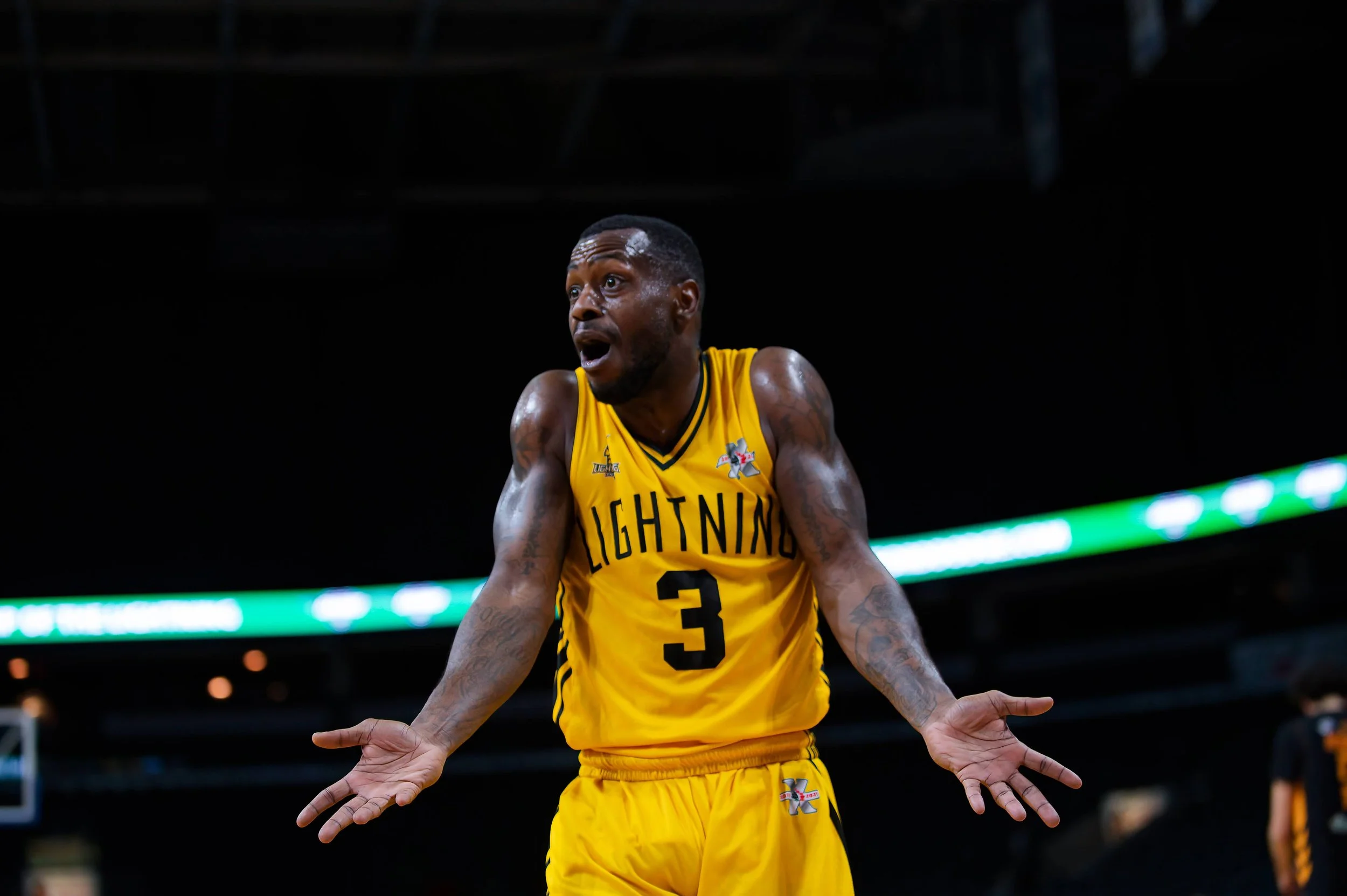
* * *
It was the Chris Jones he has been trying to escape his entire life.
In the third quarter of London’s 118-110 loss to the Sudbury Five on April 14, Jones took issue with a call by complaining and banging the backboard support. Those actions drew a technical foul, but it didn’t settle down Jones who continued to rage. League officials say he started using profanity, threw a water bottle at and spit at a referee. The incident was captured by the NBLC-TV broadcast of the game.
On Friday, the NLB Canada officially suspended Jones through the end of the regular season. Soon after, the Lightning dismissed him from the team.
“Chris regrettably let his emotions get the best of him and acted in a way that not only hurt our team but embarrassed the league and our organization,” Plumb said on Friday. “This is not tolerated, and he will not be with us the remainder of the season.”
For the most part, Jones had found his place this year. But there were moments. He was among the handful of players netting a record-number of technical fouls for the squad earlier this season. Jones was hit with two technical fouls and an automatic ejection Thursday night. London had not been assessed a technical foul since March 27 against the Express, when the team netted three technical fouls, including one against Jones.
Jones, who was also named to the NBL Canada All-Star team last week, did not participate in the NBLC-TBL All-Star Weekend activities, including the game and three-point shooting competition.
“The way he reacted is just not in line with what we want to be known as an organization or league,” Plumb told Brent Lale of CTV. “We’ve got a lot of people behind the scenes trying to get this thing up and rolling again, and I think there has been a lot of good stuff so far. Unfortunately, with one incident like that, it can all come down. Sometimes you have to send a message that it’s just not going to be tolerated.”
* * *
Chris Jones has been propelled through life by talent, but constantly derailed by his own lack of impulse control. Every coach has seen it. Every team has felt it. Jones lives with it every day.
So, when his unfolding storybook season came to an abrupt end, few were surprised. As his critics would argue, this story could not have ended any other way. For Jones, however, this loss might be the most significant of his career. As a 30-year-old point guard whose internal tug-of-war has cost him a championship opportunity, he walks an uncertain path forward.
“I am trying to get back to my regular self, to come back to life a bit, to get to a happier mental place. Losing my mom six months ago really woke me up. It made me go harder than I have ever been going. I control my own destiny. I know I got the basketball ability. It’s a mental ability for me, they need to see me mentally strong and a better version of myself. I got better with this since I was 20. You know, even when I was on the NBA radar, they knew I had the game, but it was just a matter of me controlling myself, me controlling my destiny.”
Before the Sudbury incident, Jones had teams interested in bringing him back overseas. But he was happy in London.
“This is a happy place for me at this point in my life. God brought me here to give me space, to give me the opportunity to showcase myself and show people that I can still be a great leader, that I can still win a championship. When you win championships, the doors open for everybody, coaches, owners, teams. We all get to go to great places.”
He’s still struggling, both silently and publicly, with his Mom’s death. Every game was a memory he wanted to share with her – hence the text strings letting her know he was moving forward.
“It’s just something I live with every day. You know, it never gets easier, you just find a way to cope with it,” he explained. “I think about her every day. That’s why I have been playing so hard. I’m just not trying to take anything for granted after that. If she can be taken away at any moment, anytime, then anything can be.
“The last few years just showed don’t take nothing for granted because of how quickly it can be taken away. It just leaves basketball for me. Every day is a day to get better. That’s how I look at it. That’s why I play the way I play it. It’s why I get so emotional when I play because I am out here to give it my all and I expect everyone else out there to do that too. Like I said, nobody should be taking this game for granted. It could end tomorrow, and you wouldn’t know what to do. For some people, it’s all they know.”

